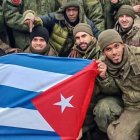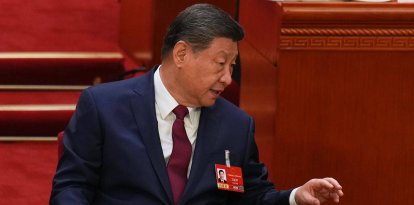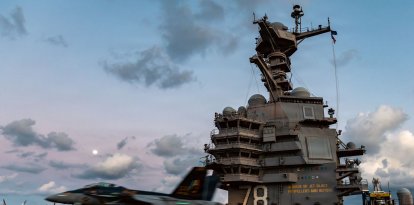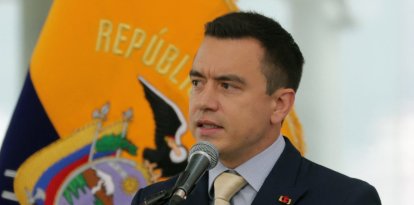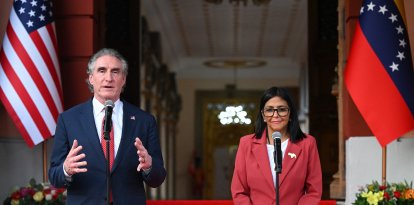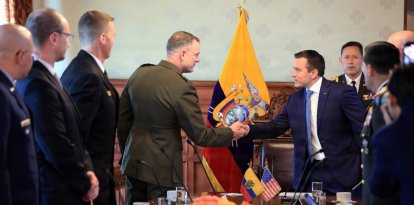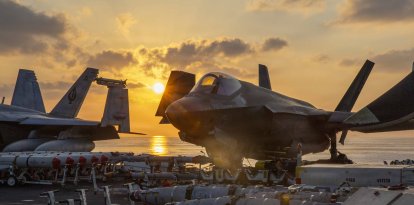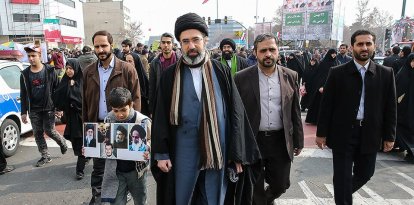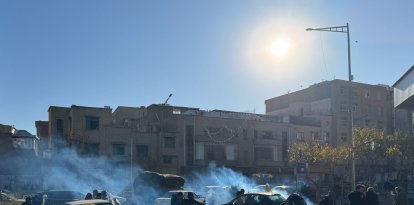ANALYSIS
Cuba’s regime welcomes the head of the Russian Intelligence Service with honors
The leader of the communist dictatorship highlighted the "excellent level of dialogue" between both nations, while international organizations denounce the increase of Human Rights violations in the Caribbean nation.
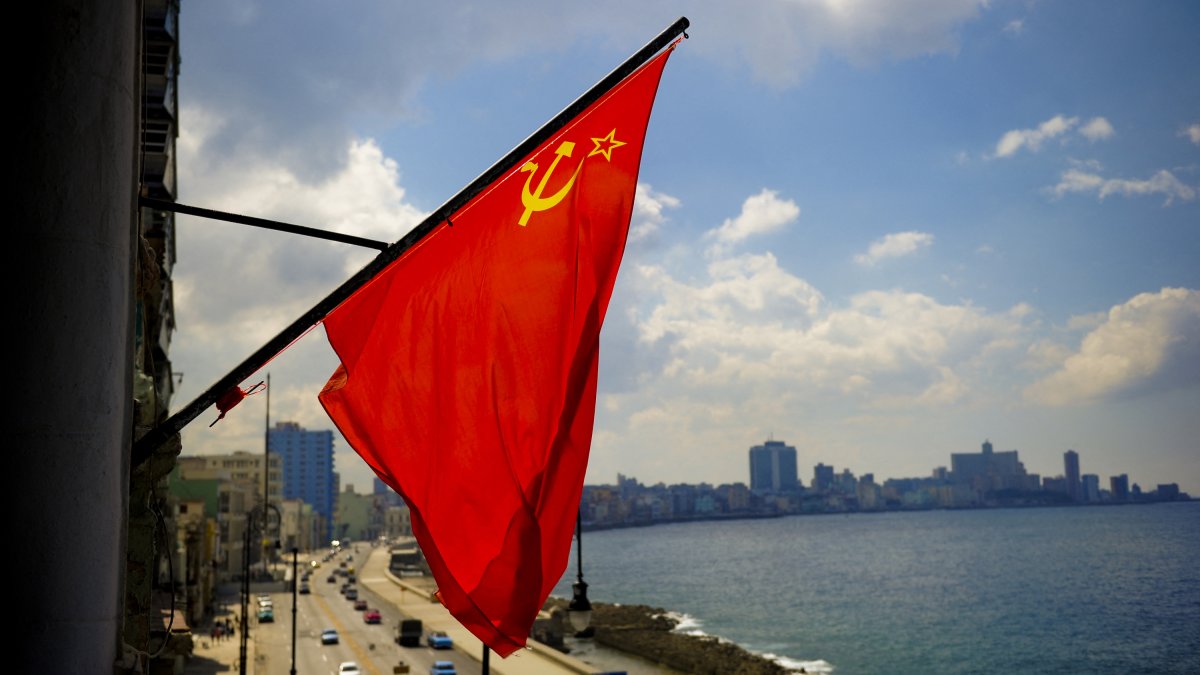
A flag of the Soviet Union flies on Havana's Malecon.
This week, the Director of the Russian Foreign Intelligence Service met with Cuban dictator Miguel Diaz Canel and other high-ranking officials of the Ministry of the Interior (MININT) at the Palace of the Revolution in Havana. The meeting on the island raises alarms about another crusade against digital freedom, while several international organizations denounce the intensification of repression and the violation of Human Rights by the regime.
Serguei S. Narishkin, current head of the Russian Foreign Intelligence Service (SVR) is considered one of the main ideologists of the Russian-Cuban rapprochement of the last decade.
">Grato encuentro ayer en el Palacio de la Revolución con Sergei Naryshkin, director del Servicio de Inteligencia Exterior de #Rusia. Dialogamos sobre el excelente estado de las relaciones bilaterales, justo en el año en que celebramos el 65 aniversario de su restablecimiento. pic.twitter.com/7Q3LQJf9TR
— Miguel Díaz-Canel Bermúdez (@DiazCanelB) July 1, 2025
During the meeting, the leader of the Cuban communist regime stressed the special importance of the visit, highlighting the ties of friendship between the two countries. "For us it is a pleasure to receive you here on this visit to Cuba, together with the delegation accompanying you; and more with the satisfaction that we are receiving a good friend of Cuba," he expressed, according to the report by the island's official newspaper, Granma.
He also thanked Moscow for its support in the face of the U.S. embargo and the recent reinclusion of Cuba on the list of countries sponsoring terrorism.
The press justified the visit, amid shortages of food, fuel and medicine, along with prolonged blackouts, and the mass exodus of Cubans, as being due to the 80th anniversary of the Soviet victory in the Great Patriotic War and the 65th anniversary of the reestablishment of diplomatic relations between the two countries, but it also coincides with several working forums between officials of the two countries, and other exchange activities between political actors in favor of the Castro regime.
"A reliable and loyal partner"
Narishkin reiterated that Cuba is "a reliable and loyal partner" and stressed the need to confront common threats through coordination between intelligence services and law enforcement.
The visits, negotiations and agreements signed by Vladimir Putin's right-hand man with Cuba are evidence of a cooperation strategy that, beyond symbolic gestures, aims at a real strengthening of ties in intelligence, defense and counter-intelligence.
Although details of the agenda between the leaders were not disclosed, diplomatic sources indicate that they discussed cooperation mechanisms in cybersecurity, surveillance of social networks, and control of digital content, a field where Russia has offered extensive technical assistance to like-minded governments, such as Cuba, Venezuela and Belarus.
The Kremlin's man for strategic affairs
Since then, the two have shared training and work. They then collaborated together in the St. Petersburg administration and by the early 2000s were both stationed in the Kremlin.
There he became Medveded's right-hand man during his presidential term, serving as his head of the Presidential Administration from 2008 until the end of 2011. Subsequently he was elected deputy to the Duma for the ruling party, being appointed chairman of this alleged legislative body. It was during this period that his first visit to Havana occurred.
A year later, on September 22, 2016, Narishkin was officially appointed as director of the Foreign Intelligence Service (SVR) by presidential decree. That same year, Russia announced the cancellation of 90% of Cuban debt, a gesture largely driven by Narishkin himself, as a sign of confidence and geopolitical interest in maintaining Cuba as a strategic ally in the Western Hemisphere.
Narishkin has also received senior Cuban officials in Moscow.
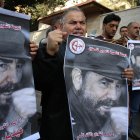
World
Report reveals political violence and terrorism that sustain the Cuban dictatorship
Diane Hernández
What are Cuba and Russia negotiating?
One of the most recurrent topics in the Russian-Cuban meetings has been the possible reopening of the Lourdes spy base, officially closed in 2002. Although its reactivation has never been confirmed, Narishkin has followed the issue closely.
Lourdes Spy Base
It operated from 1964, after the so-called Missile Crisis, at the height of the Cold War, until 2001, becoming the largest Soviet listening station outside the USSR. Its closure was attributed to financial reasons and an attempt to improve relations between Russia and the West.
According to several sources, the Russian apparatus has provided technical advice to Havana in areas such as digital surveillance, control of social networks, and detection of "subversive elements," language used by the official commanders to repress the protests and criticisms of the people, immersed in one of the worst crises in its history.
Narishkin's visit takes place precisely in a context where repression against Cuban civil society is already intense and persistent, and denunciations by human rights organizations have increased.
Following the historic protests of July 11, 2021, more than 1,150 people remain imprisoned for political reasons, including artists, journalists, activists and ordinary citizens. Digital repression has also increased, with restrictions on internet access, surveillance of communications and criminalization of online activism.
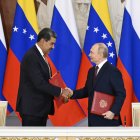
World
Russia builds ammunition plant for Kalashnikov rifles in Venezuela, just miles from US influence
Emmanuel Alejandro Rondón
The meeting also took place after the oceanographic research vessel Admiral Vladimirsky, considered by NATO as a spy ship, which is part of the Russian Navy's Baltic Fleet, arrived at the port of Havana.
According to Russian and Cuban media reports, the ship made a working visit, right in the middle of the disagreement between Washington and Moscow over the war in Ukraine, which also took it to Venezuela, and possibly to Nicaragua.





